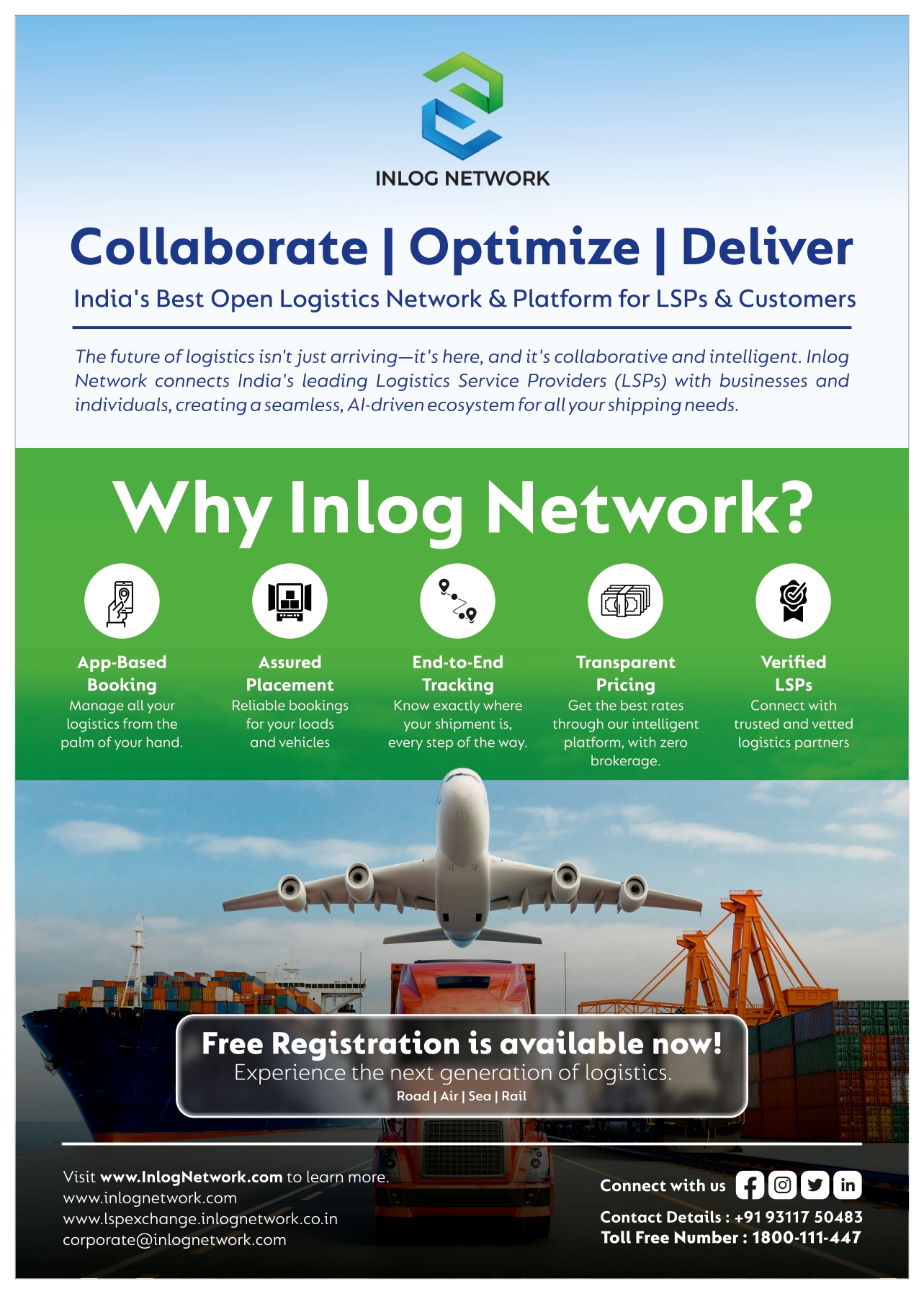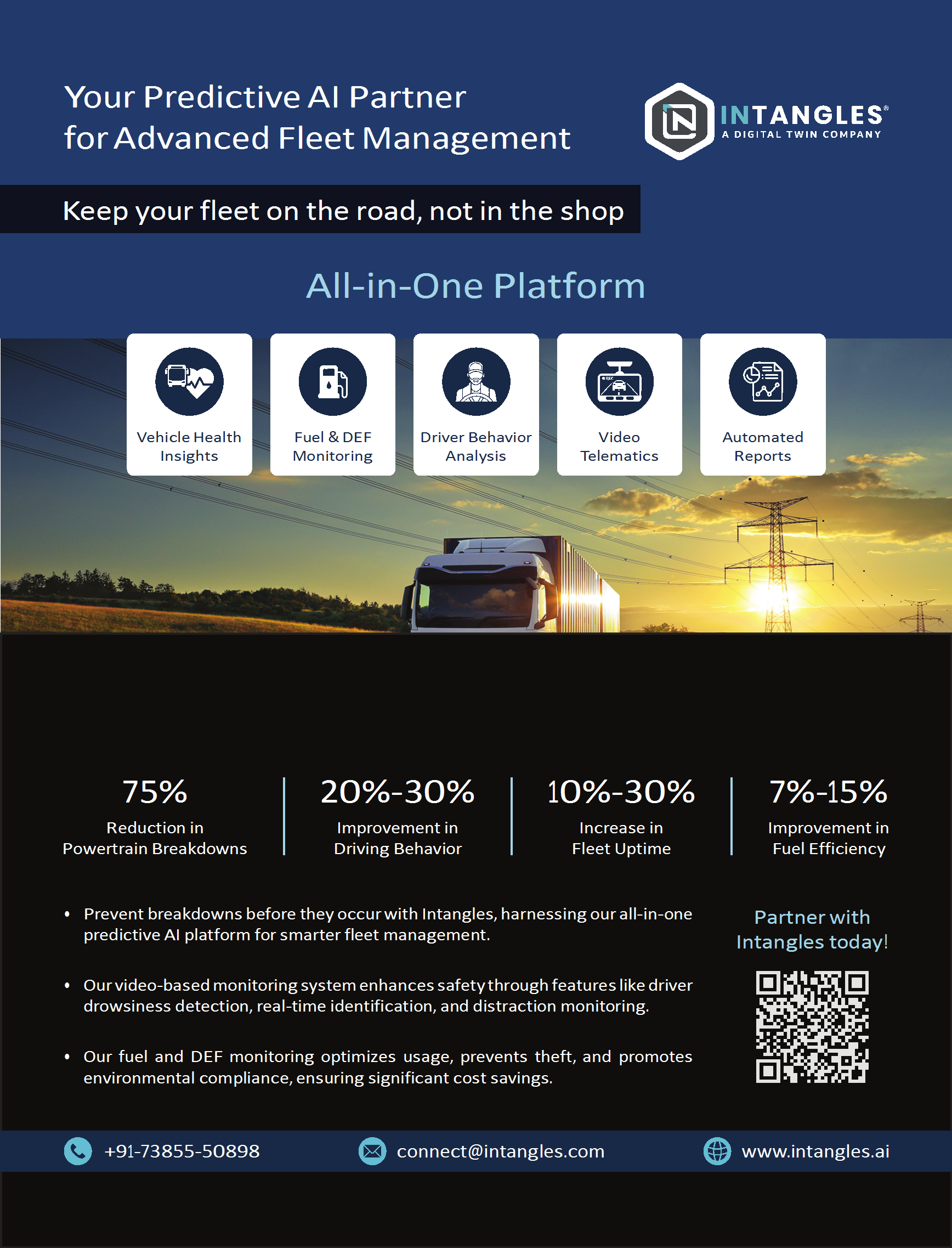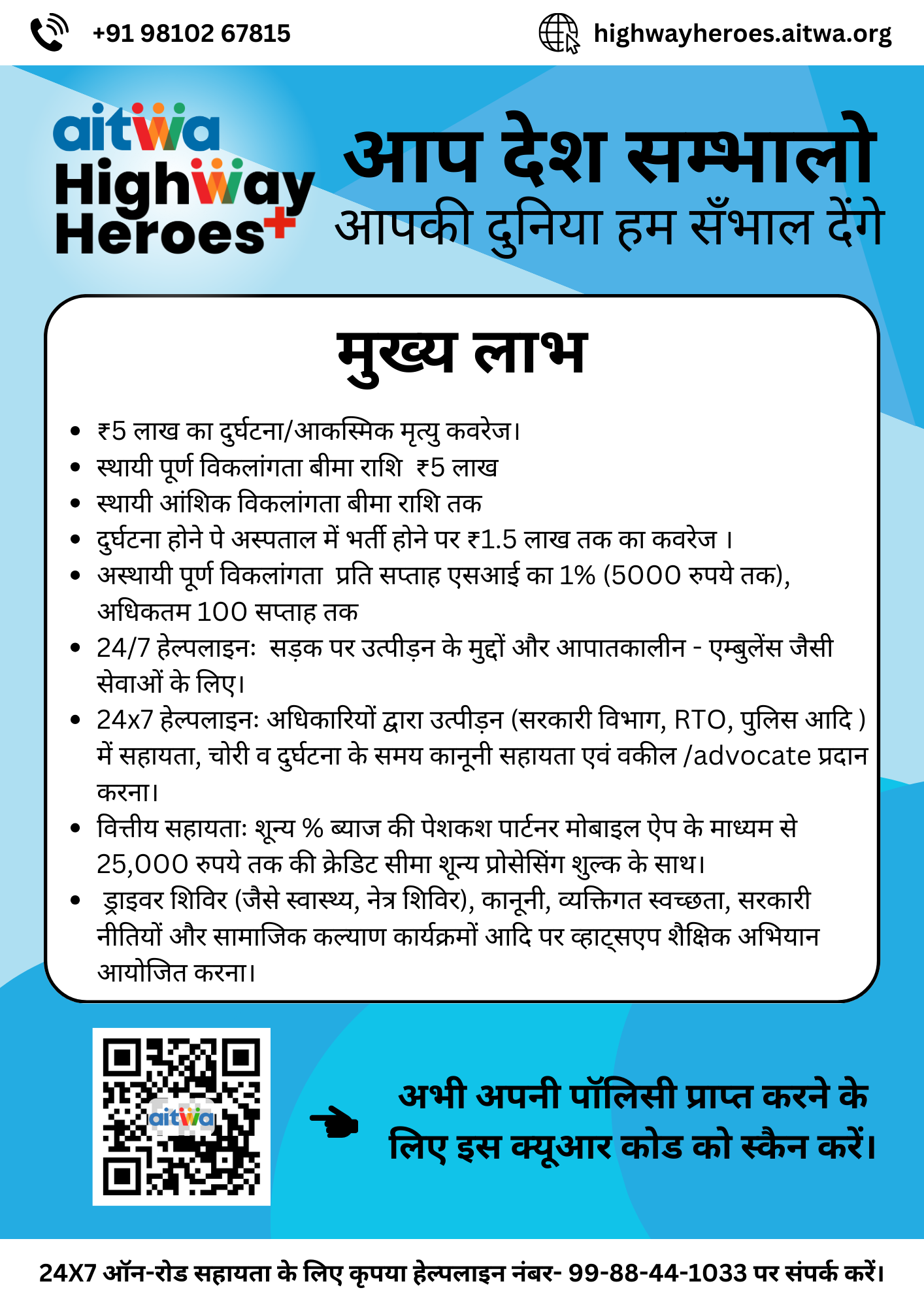All India Transporters Welfare Association
News
All India Transporters Welfare Association (AITWA)
All India Transporters Welfare Association (AITWA) was established in the year 2000 as a society registered under Societies Registration Act, 1860 for the welfare of India's Road Transport Fraternity and to act as its mouthpiece in the matters related to country's Road Transport Industry. During the past Twentyone years, AITWA has been recognized as one of the foremost apex bodies of India's Road Transport Sector by the Ministry of Road Transport and Highways (MoRTH). AITWA have been generously working as a powerful pillar of nations prosperous economy from the past 21+ years, representing nearly 65% of the organized Indian Road Transport Business. A proud member and Indian partner of International Road Transport Union (IRU Geneva), AITWA represent issues of India's transport industry with Central & State Governments and other authorities including planning commission. It also interacts with various other trade forums like CII, FICCI, and ASSOCHAM, PHDCCI, CAIT, etc. to help formul....
more
Ashok Goyal
National President
Building Resilient Supply Chai....
For decades, logistics in India operated quietly in the
background, largely unnoticed by consumers and policymakers alike. It was
viewed as a support function—important, yet secondary to manufacturing and
trade. Today, that perception has changed dramatically. Logistics has emerged
as a central pillar of economic growth, customer satisfaction, and national
resilience. As India’s logistics sector moves toward rapid expansion in the
coming years, its future success depends not on marginal upgrades but on a
comprehensive rethinking of how supply chains are designed, managed, and
sustained. This transformation has been shaped largely by crisis. The
COVID-19 pandemic was a defining moment for global supply networks, exposing
their fragility and interconnected vulnerabilities. India was no exception.
Factory shutdowns, labour shortages, and transportation disruptions brought
commerce to a standstill. Essential goods s....
Events
Our Services
Buy & Sell Vehicles
- Sellers can list their vehicles; absolutely free
- Buyers can browse through, or post their requirements to receive matches in their inbox
Employment Exchange
- Opportunity for professionals to post their details and get hired
- Companies get access to professionals database, which helps in their recruitments
Advertising
- Opportunity for companies/members to list their ad on the website
- We offer different ad locations to suit your needs
Grievances
- Log grievances against Customers
- Log grievances against Vendors





